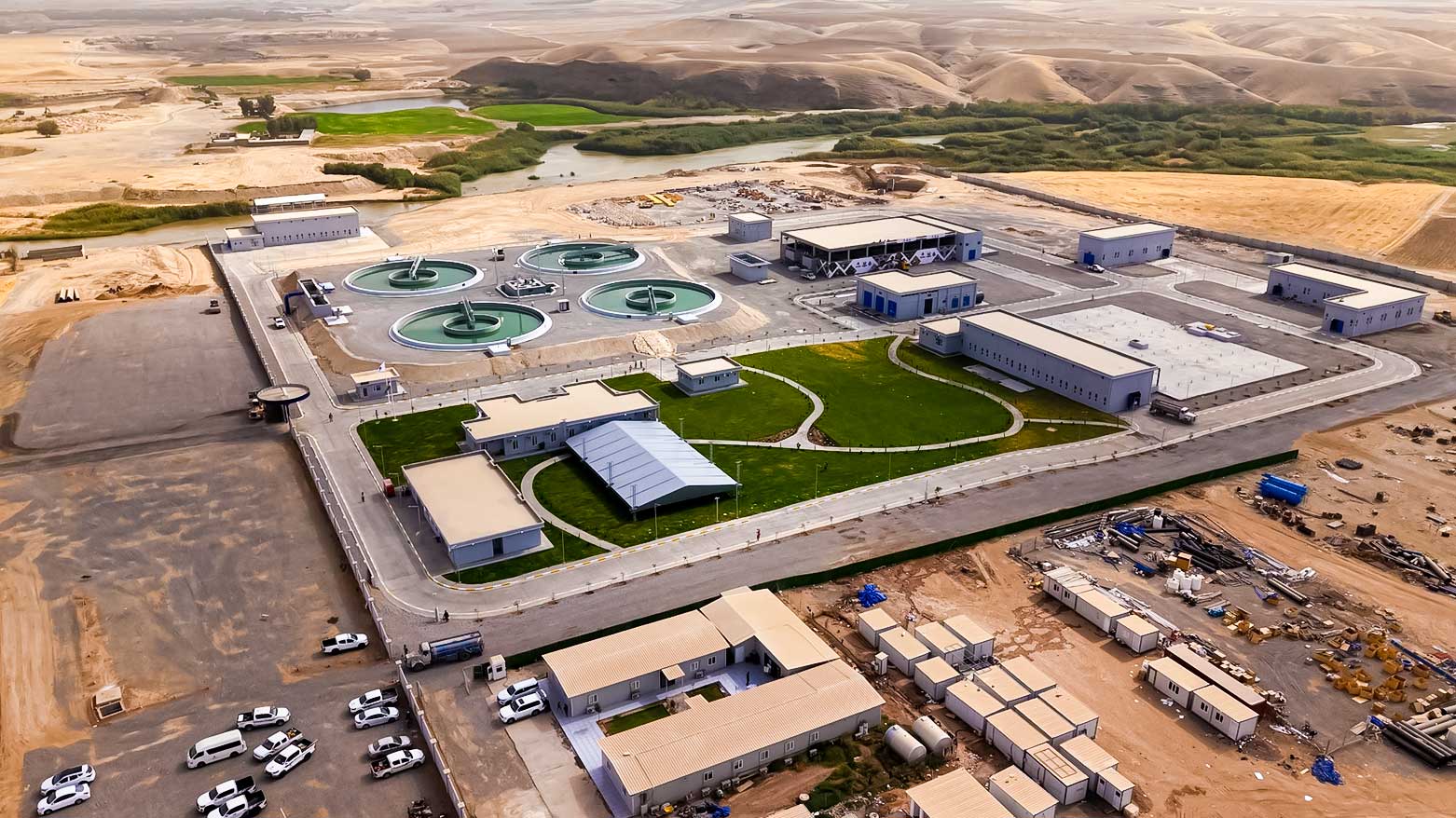Ahead of Schedule, Qushtapa Water Project Set to Serve 240,000 Residents
KRG Prime Minister Masrour Barzani will inaugurate the Qushtapa Water Project, designed to provide clean water to 240,000 residents across 72 villages for the next 20 years. The 222 billion dinar project, completed ahead of schedule, will supply 72,000 cubic meters daily.

ERBIL (Kurdistan24) – The Prime Minister of the Kurdistan Regional Government (KRG) Masrour Barzani, will inaugurate the Qushtapa Water Project today, marking the completion of one of the region’s most ambitious and strategic infrastructure undertakings. Located 62 kilometers from the town of Qushtapa, the project stands as a cornerstone in the KRG’s long-term plan to resolve chronic water shortages and strengthen public service delivery across the Erbil province.
Designed to provide clean and sustainable water to over 240,000 residents across Qushtapa, Bustana, and 72 surrounding villages, the project is expected to meet the area’s needs for the next two decades. Situated along the Little Zab River, it transfers water directly to purification stations before distribution through an extensive network — a turning point for infrastructure and quality of life in the region.
Speaking to Kurdistan24, Ari Salim, Director of Qushtapa Water, confirmed that the project has reached its operational stage.
“All pumps have been fully installed, and once purification work is complete, water will be pumped to the Aziyan reservoir, then to Kani Bazra, and finally to a 10,000-cubic-meter tank. From there, it will flow by gravity to Qushtapa through a 266-kilometer HDPE pipeline,” he explained.
Salim noted that the project “will solve the region’s water shortage for the next 20 years,” emphasizing that it includes three main reservoirs extending from Qashqa village to Bustana and Qushtapa.
To date, 72 structural supports and a 36-kilometer main pipe of 800-millimeter diameter have been completed, reaching the border areas. The network will supply 72,000 cubic meters of clean water daily, making it one of the largest and most sustainable water projects in the Kurdistan Region.
The project cost stands at 222 billion Iraqi dinars, executed entirely through local expertise under full technical and governmental supervision.
In a statement to Kurdistan24, Maher Tahsin, the project’s engineering director, praised the efforts of the technical teams:
“Qushtapa has the deepest water well in all of Iraq, between 700 and 750 meters deep. The water quality is excellent, making it ideal for treatment and household use.”
He explained that the project consists of two main pipelines — a 37-kilometer carbon steel line currently undergoing cleaning and testing, and a 263-kilometer high-density polyethylene (HDPE) line that has successfully passed all technical inspections.
The project had an initial two-year completion timeline. However, the work was completed ahead of schedule, thanks to the tireless efforts of 750 local engineers and workers who continued construction under challenging conditions.
Officials described the project as a “milestone in Kurdish technical capacity and planning efficiency,” reflecting the KRG’s commitment to sustainable infrastructure and water security.
While Erbil celebrates this major achievement, other regions of Iraq continue to struggle with worsening water crises. In Basra, despite its vast oil wealth and river systems, residents face severe salinity, pollution, and infrastructure decay.
“This is the water we receive at home — salty and unfit even for washing,” a Basra resident told Kurdistan24. Many families rely on water tankers costing up to 20,000 dinars per barrel, an expense that burdens low-income households.
As contamination in the Shatt al-Arab worsens, hospitals in Basra report increasing cases of waterborne diseases. Local activists stress the need for sustainable national water management policies modeled on projects like Qushtapa’s, which integrate local expertise, environmental sustainability, and modern technology.
The Qushtapa Water Project, now set for inauguration by the KRG Prime Minister, is more than an infrastructure success — it is a symbol of resilience and renewal, ensuring that thousands of citizens will have access to clean water for generations to come.